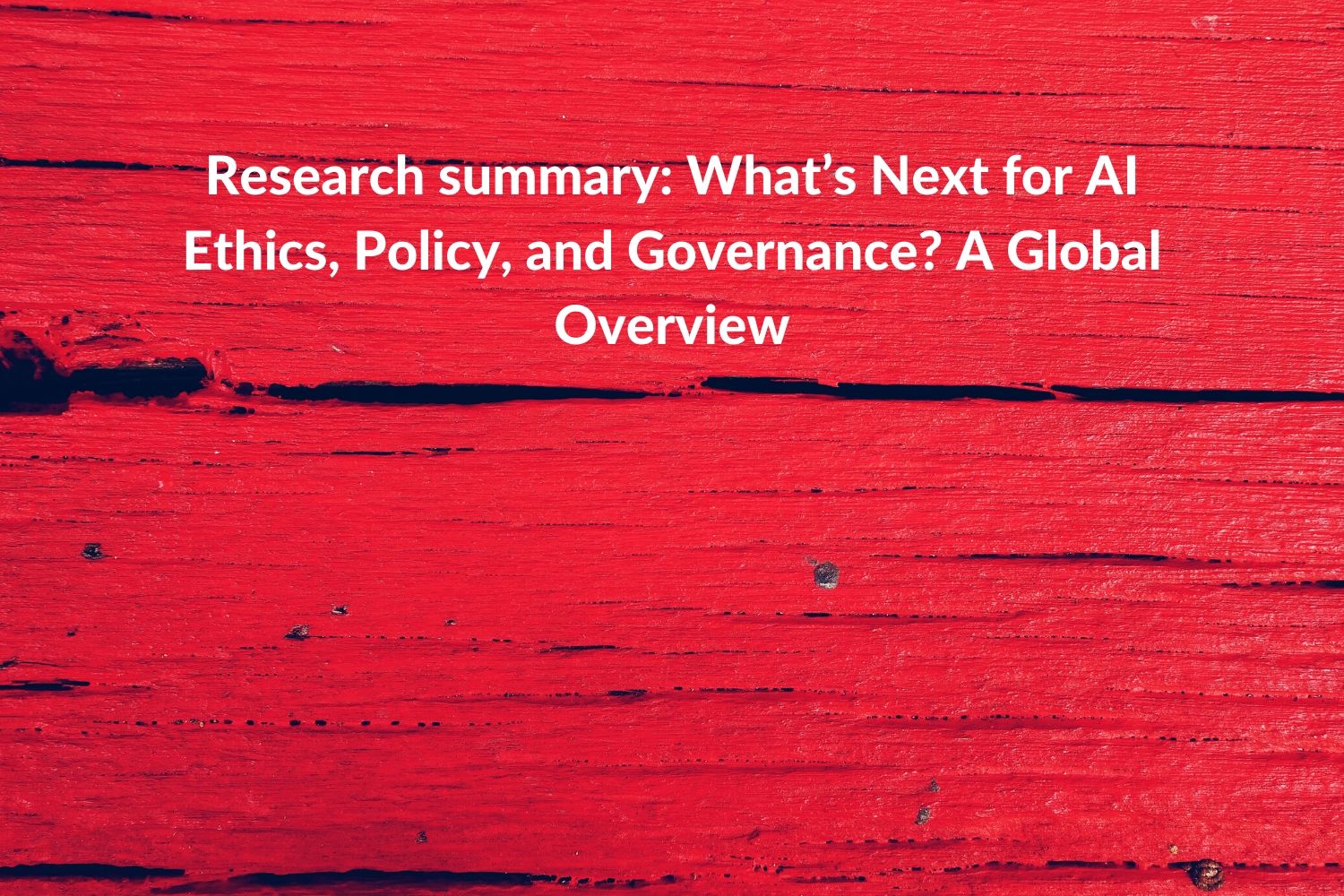
This paper (by Daniel Schiff, Justin Biddle, Jason Borenstein and Kelly Laas) attempts to discern underlying motivations for creating AI ethics documents, the composition of the people behind them, and what factors might determine the success of the documents in achieving their goals.
In this ongoing piece of work, the authors present the landscape of ethical documents that has been flooded with guidelines and recommendations coming from a variety of sectors including government, private organizations, and NGOs. Starting with a dive into the stated and unstated motivations behind the documents, the reader is provided with a systematic breakdown of the different documents prefaced with the caveat that where the motivations are not made explicit, one can only make a best guess based on the source of origin and people involved in its creation. The majority of the documents from the governmental agencies were from the Global North and western countries which led to a homogeneity of issues that were tackled and the recommendations often touted areas of interest that were specific to their industry and economical make up. This left research and development areas of interest like tourism and agriculture largely ignored which continue to play a significant role in the Global South. The documents from the former category were also starkly focused on gaining a competitive edge, which was often stated explicitly, with a potential underlying goal of attracting scarce, high-quality AI talent which could trigger brain drain from other countries that are not currently the dominant players in the AI ecosystem. Often, they were also positioning themselves to gain an edge and define a niche for themselves, especially in the case of countries that are non-dominant and thus overemphasizing the benefits while downplaying certain negative consequences that might arise from widespread AI use, like the displacement and replacement of labor.
For documents from private organizations, they mostly focused on self and collective regulation in an effort to pre-empt stringent regulations from taking effect. They also strove to tout the economic benefits to society at large as a way of de-emphasizing the unintended consequences. A similar dynamic as in the case of government documents played out here where the interests of startups and small and medium sized businesses were ignored and certain mechanisms proposed would be too onerous for such smaller organizations to implement this further entrenching the competitive advantage of larger firms.
The NGOs on the other hand seemed to have the largest diversity both in terms of the participatory process of creation and the scope, granularity, and breadth of issues covered which gave technical, ethical, and policy implementation details making them actionable. Some documents like the Montreal Declaration for Responsible AI were built through an extensive public consultation process and consisted of an iterative and ongoing approach that the Montreal AI Ethics Institute contributed to as well. The IEEE document leverages a more formal standards making approach and consists of experts and concerned citizens from different parts of the world contributing to its creation and ongoing updating.
The social motivation is clearly oriented towards creating larger societal benefits, internal motivation is geared towards bringing about change in the organizational structure, external strategic motivation is often towards creating a sort of signaling to showcase leadership in the domain and also interventional to shape policy making to match the interests of those organizations.
Judging whether a document has been successful is complicated by a couple of factors: discerning what the motivations and the goals for the document were, and the fact that most implementations and use of the documents is done in a pick-and-choose manner complicating attribution and weight allocation to specific documents. Some create internal impacts in terms of adoption of new tools, change in governance, etc., while external impacts often relate to changes in policy and regulations made by different agencies. An example would be how the STEM education system needs to be overhauled to better prepare for the future of work. Some other impacts include altering customer perception of the organization as one that is a responsible organization which can ultimately help them differentiate themselves.
At present, we believe that this proliferation of ethics documents represents a healthy ecosystem which promotes a diversity of viewpoints and helps to raise a variety of issues and suggestions for potential solutions. While there is a complication caused by so many documents which can overwhelm people looking to find the right set of guidelines that helps them meet their needs, efforts such as the study being done in this paper amongst other efforts can act as guideposts to lead people to a smaller subset from which they can pick and choose the guidelines that are most relevant to them.
